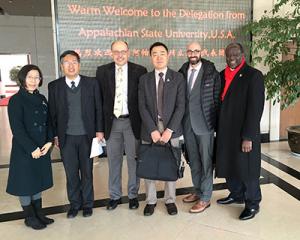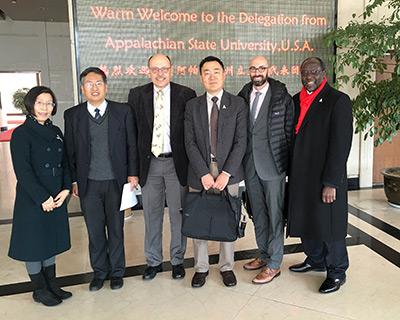ASU NEWS—Appalachian State University has entered a partnership with Wenzhou University in Wenzhou, China, that will facilitate collaborative activities, including student and faculty exchanges, joint academic programming and research collaboration. The partnership paves the way for a joint entrepreneurship course to be offered to Appalachian and Wenzhou students.
Also possible is the creation of an Appalachian-Wenzhou Confucius Institute at Appalachian that would promote teaching the Chinese language and promote a cultural understanding of China. Such institutes exist in North Carolina at N.C. State University and Pfeiffer University.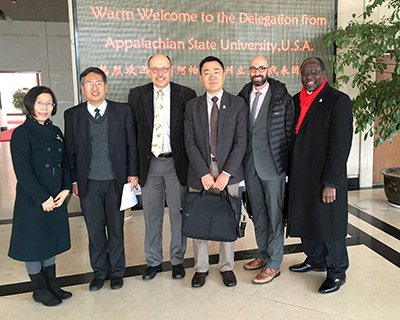
Appalachian State University and Wenzhou University in China have signed an agreement that will facilitate future faculty and student exchanges and establish a joint entrepreneurship program that will be directed by the Walker College of Business. Pictured from left are Wenzhou University representatives Professor Ye Miao, director of the foreign affairs office, and Vice President Shaoming Huang, and Appalachian representatives Dr. Martin Meznar, Dr. Dan Hsu, Jesse Pipes and Dr. Jesse Lutabingwa. Photo submitted.
In December 2015, Dr. Jesse Lutabingwa, associate vice chancellor for international education and development at Appalachian, led a delegation of faculty from the Walker College of Business to Wenzhou University comprised of Dr. Martin Meznar, associate dean of international programs; Jesse Pipes, director of the Holland Fellows Program and lecturer in entrepreneurship; and Dr. Dan Hsu, assistant professor of entrepreneurship in the Department of Management.
They met with the president, vice president, deans, program directors and faculty at Wenzhou University to sign the agreement, discuss areas of collaboration, and agree on specific programmatic activities that will be undertaken in the first two years of the partnership.
Entrepreneurship is one of Wenzhou University's strengths and this was one of the key elements that attracted Appalachian to the Chinese university.
According to Pipes, the university has a School of Entrepreneurship with many student-owned companies that are being incubated within the school's facilities. Appalachian's Walker College of Business is interested in connecting its entrepreneurship program with the program at Wenzhou University through a joint entrepreneurship course.
Under Hsu's leadership, students from both universities would be prepared to develop international entrepreneurial ventures that embrace and foster global engagement through international student and faculty exchange activities.
Each university will select 15 students to collaborate via the Internet on entrepreneurship-based projects. Reciprocal student visits to the U.S. and China from both universities would begin in 2017 and held in subsequent years.
According to Pipes, the program will serve as an applied international business experience in Asia, with an emphasis on producing tangible outcomes and products. The course will start as a pilot in May.
Prior to visiting Wenzhou University, Lutabingwa visited other Chinese partner institutions to discuss opportunities for further deepening the relationship with them. The institutions visited included, Beijing International Studies University, Northeastern University, Shaanxi Normal University and Fudan University.
He said there are several new programs in progress or being developed at the partner institutions that will help deepen the institutional relationships beyond the regular student exchanges. These include regular and ongoing faculty exchanges, academic programs, especially at the graduate level, and library-to-library exchanges.
Located in the Zhejiang Province south of Shanghai in eastern China, Wenzhou University enrolls more than 25,000 students. The university offers degrees at the undergraduate, masters and doctoral levels.




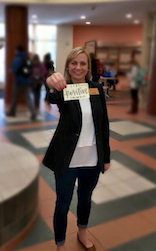
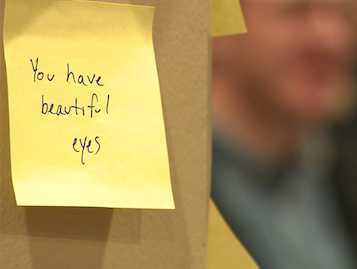 BB&T Student Leadership Center Assistant Director Amy Odom and Executive Assistant to the Chancellor Debbie Covington were especially instrumental in encouraging Bender to pursue her goals.
BB&T Student Leadership Center Assistant Director Amy Odom and Executive Assistant to the Chancellor Debbie Covington were especially instrumental in encouraging Bender to pursue her goals.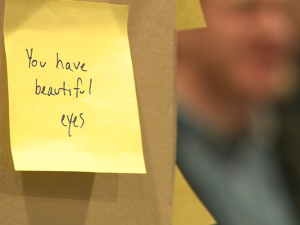
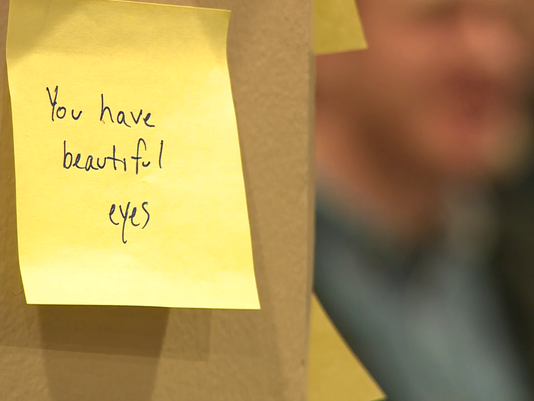
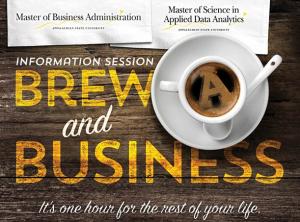
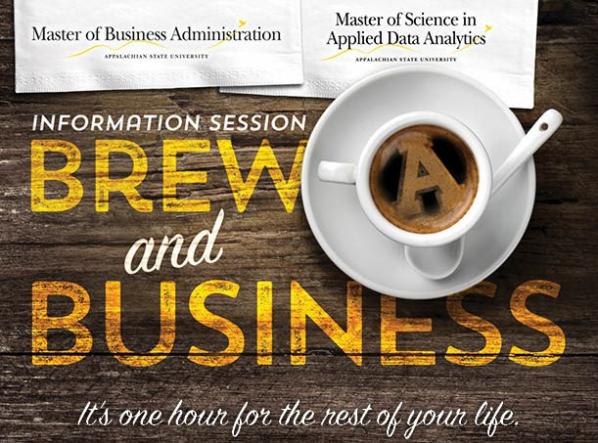
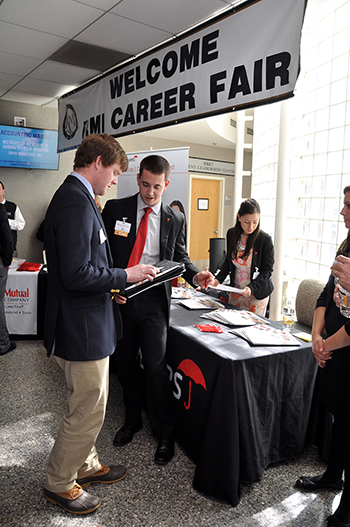


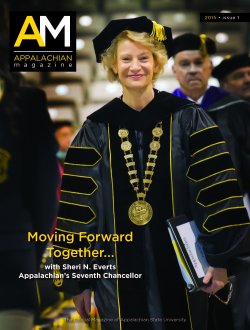 Appalachian State University Brantley Risk & Insurance Center Director Karen Epermanis is profiled in the December 2015 "Appalachian Magazine" Faculty Of Distinction section on page 33. View the online version of the magazine
Appalachian State University Brantley Risk & Insurance Center Director Karen Epermanis is profiled in the December 2015 "Appalachian Magazine" Faculty Of Distinction section on page 33. View the online version of the magazine 
